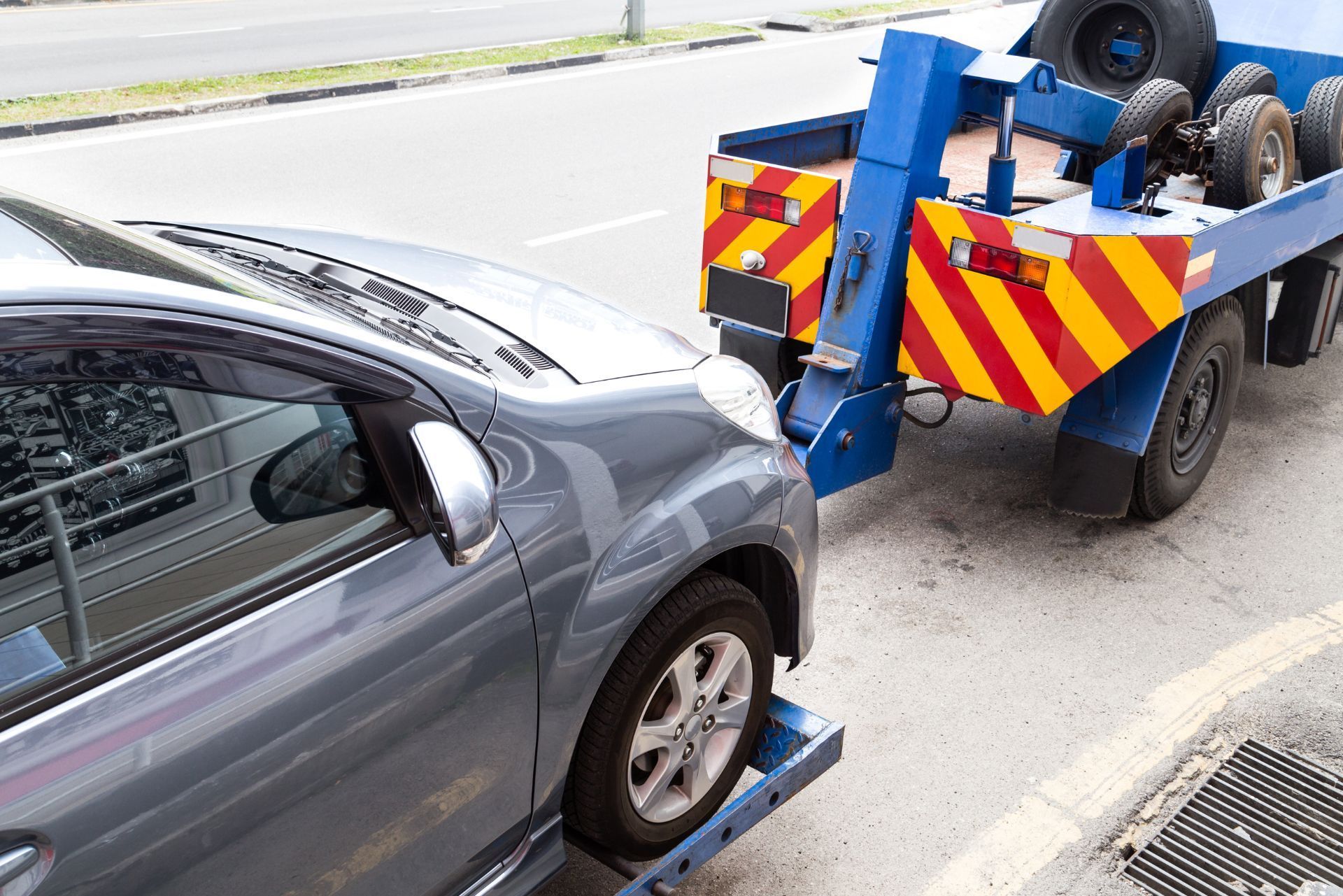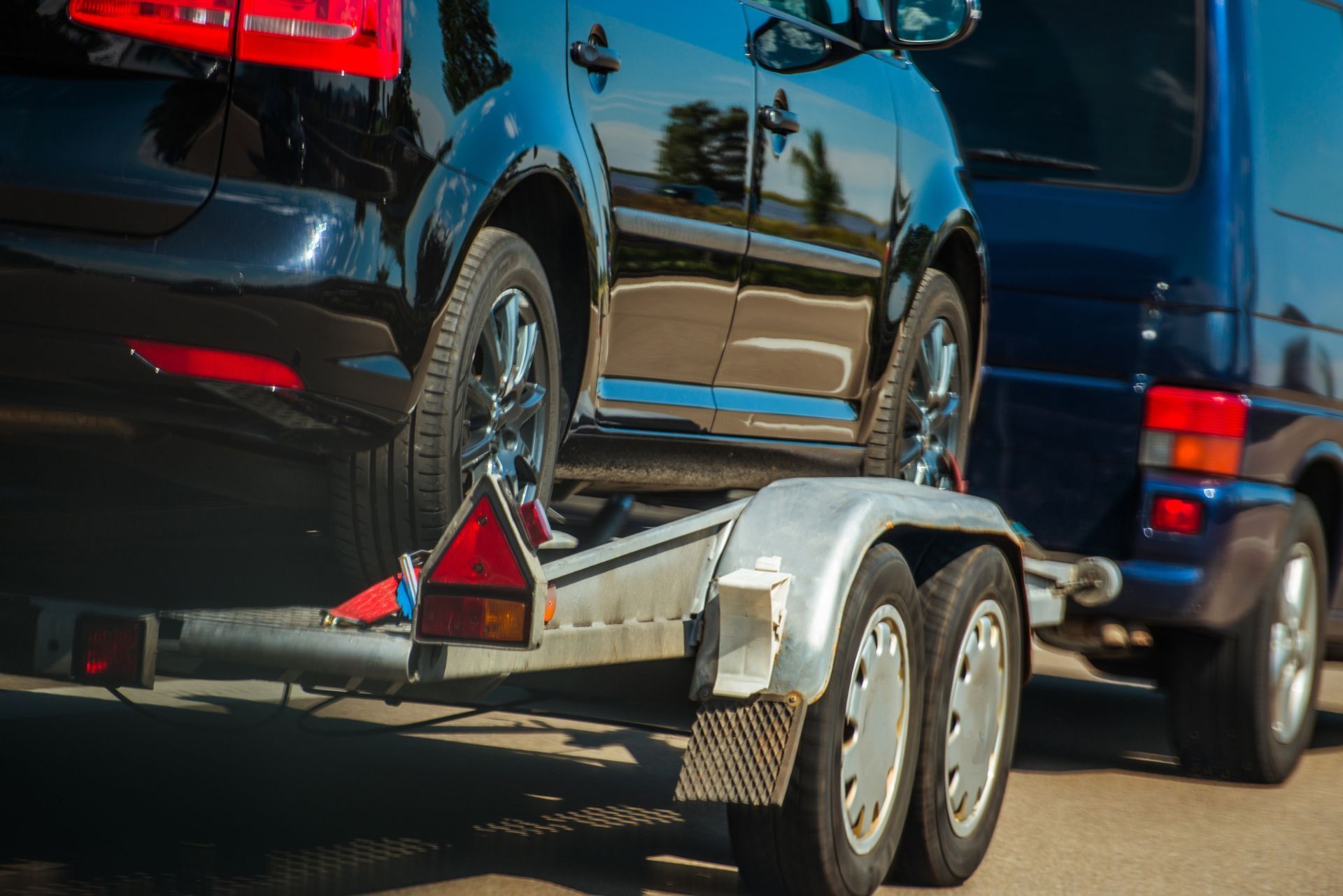
Most Common Business Policies
Index
Understanding Towing Insurance
Legal Requirements for Towing Insurance in Arizona
Types of Towing Insurance Policies
Factors Influencing Towing Insurance Costs
Choosing the Right Towing Insurance Provider
Common Exclusions in Towing Insurance Policies
The Claims Process for Towing Insurance
Contact Us
Operating a towing business in Arizona comes with its own set of challenges and responsibilities. One of the most critical aspects of running a towing company is ensuring that the business is adequately protected through insurance. Arizona towing insurance is essential for safeguarding your assets, your employees, and your clients. This article will explore everything you need to know about towing insurance in Arizona, including types of coverage, legal requirements, and tips for choosing the right policy.
Understanding Towing Insurance
Towing insurance is specifically designed to cover the unique risks associated with towing operations. Unlike standard auto insurance, towing insurance offers specialized coverage tailored to the needs of towing companies. This type of insurance typically includes liability coverage, physical damage coverage, and other essential protections. As thinsurance coverage cane towing industry continues to evolve, so too do the risks involved, making it imperative for towing businesses to stay informed about their insurance options and requirements.
What Does Towing Insurance Cover?
The coverage provided by towing insurance can vary significantly depending on the policy and the insurer. However, most towing insurance policies include the following key components:
- Liability Coverage: This is crucial for protecting your business against claims made by third parties for bodily injury or property damage resulting from your towing operations.
- Physical Damage Coverage: This covers damage to your towing vehicles and equipment due to accidents, theft, or vandalism.
- On-Hook Coverage: This protects vehicles that are in your custody while being towed, ensuring that you are covered if they are damaged while in your care.
- Garage Keepers Liability: This provides coverage for vehicles stored at your facility, protecting against damage or loss while they are parked.
Why Is Towing Insurance Important?
The importance of towing insurance cannot be overstated. Without adequate coverage, towing companies expose themselves to significant financial risks. Accidents can happen at any time, and the costs associated with liability claims, vehicle repairs, and legal fees can quickly add up. Towing insurance not only protects the business financially but also enhances its credibility with clients and partners. Furthermore, having comprehensive insurance coverage can be a deciding factor for potential clients when choosing a towing service, as it demonstrates a commitment to professionalism and responsibility.
In addition to the standard coverage options, towing companies may also consider additional endorsements or riders to their policies. These can include coverage for specialized equipment, such as winches or dollies, and even protection against environmental hazards if the towing operation involves vehicles that may leak fluids. As regulations around environmental safety become stricter, having this additional coverage can safeguard businesses from hefty fines and liabilities. Moreover, understanding the nuances of towing insurance can empower operators to make informed decisions that not only protect their assets but also enhance their operational efficiency and reputation in the industry.

Legal Requirements for Towing Insurance in Arizona
In Arizona, towing companies are subject to specific legal requirements regarding insurance coverage. Understanding these requirements is essential for compliance and for the protection of your business.
Minimum Coverage Requirements
The state of Arizona mandates that all towing companies carry a minimum level of liability insurance. As of now, the minimum required coverage is:
$300,000: This is the minimum liability coverage required for bodily injury and property damage.
While this is the legal minimum, many towing companies opt for higher coverage limits to ensure comprehensive protection against potential claims. Higher coverage can be particularly beneficial in the towing industry, where the risks associated with vehicle recovery and transport can lead to significant financial liabilities. For example, if an accident occurs during a tow, the costs associated with vehicle damage, medical expenses, and potential lawsuits can quickly exceed the minimum coverage, making additional insurance a wise investment.
Additional Licensing and Permits
In addition to insurance requirements, towing companies in Arizona must also obtain the necessary licenses and permits to operate legally. This includes a towing business license and, in some cases, specific permits for operating in certain municipalities. It's crucial to check local regulations to ensure compliance. Different cities may have varying requirements, which can include background checks for drivers, vehicle inspections, and adherence to local towing ordinances. Furthermore, staying updated on changes in legislation is vital, as local governments may revise their regulations to enhance safety and accountability within the towing industry.
Moreover, towing companies must also consider the importance of training and certification for their staff. Many municipalities require tow truck operators to complete specific training programs that cover safe towing practices, equipment handling, and customer service. This not only helps in compliance with local laws but also enhances the company's reputation and reliability. A well-trained team can mitigate risks and improve operational efficiency, ultimately leading to better service for customers and a stronger position in the competitive towing market.
Types of Towing Insurance Policies
When selecting towing insurance, business owners can choose from various policy types. Each type serves different needs and offers varying levels of protection. Understanding these options can help you make an informed decision.
Commercial Auto Insurance
Commercial auto insurance is a foundational policy for towing companies. It covers the vehicles used in the towing operation, protecting against accidents and damages. This type of insurance is essential for any business that relies on vehicles for its operations. Additionally, it often includes coverage for physical damage, liability, and even uninsured motorist protection, ensuring that your fleet is safeguarded against a wide array of potential incidents. Given the unpredictable nature of towing work, having robust commercial auto insurance can be a lifesaver, especially in the event of an accident involving a client’s vehicle.
General Liability Insurance
General liability insurance is another critical component of a towing insurance package. It protects the business from claims related to bodily injury or property damage that may occur during towing operations. This coverage is vital for safeguarding the company's assets and reputation. Furthermore, it can also cover legal fees and settlements if your business is sued, which can be particularly important in the towing industry where disputes can arise over service quality or vehicle damage. By investing in general liability insurance, towing companies can operate with greater peace of mind, knowing they have a financial safety net in place.
Specialized Towing Insurance
Some insurance providers offer specialized towing insurance policies that combine various coverages tailored specifically for towing operations. These policies may include on-hook coverage, garage keepers liability, and more, providing comprehensive protection under one umbrella. On-hook coverage is particularly beneficial as it protects vehicles while they are being towed, ensuring that any damages incurred during transport are covered. Additionally, garage keepers liability protects against losses that may occur while vehicles are stored on your premises, addressing concerns that arise from theft, vandalism, or accidental damage. By opting for specialized towing insurance, businesses can ensure they are not only compliant with industry standards but also adequately protected against the unique risks associated with towing operations.
Factors Influencing Towing Insurance Costs
The cost of towing insurance can vary widely based on several factors. Understanding these factors can help business owners anticipate their insurance expenses and make informed decisions when shopping for coverage.
Business Size and Scope
The size of the towing operation plays a significant role in determining insurance costs. Larger companies with multiple vehicles and employees may face higher premiums due to increased risk exposure. Conversely, smaller operations may benefit from lower rates. Additionally, the geographical area in which the towing business operates can also affect costs. For instance, companies in urban areas might encounter higher premiums due to a greater likelihood of accidents and theft, while those in rural locations may enjoy lower rates due to less traffic and fewer claims.
Claims History
A towing company's claims history can significantly impact insurance premiums. Companies with a history of frequent claims may be viewed as higher risk by insurers, resulting in increased rates. Maintaining a good safety record can help keep insurance costs down. Moreover, implementing proactive safety measures, such as regular training for drivers and investing in advanced safety equipment, can not only reduce the likelihood of accidents but also demonstrate to insurers that the company is committed to risk management, potentially leading to lower premiums over time.
Coverage Limits and Deductibles
The level of coverage selected and the chosen deductible also influence insurance costs. Higher coverage limits typically result in higher premiums, while opting for a higher deductible can lower monthly costs. It's essential to strike a balance between affordability and adequate protection. Furthermore, different types of coverage, such as liability, collision, and comprehensive insurance, can also affect overall costs. Business owners should carefully evaluate their specific needs and consider additional endorsements or riders that may provide extra protection, ensuring they are not underinsured in the event of a significant loss.

Choosing the Right Towing Insurance Provider
Selecting the right insurance provider is crucial for ensuring that your towing business is adequately protected. Not all insurers offer the same level of service or coverage options, so careful consideration is necessary.
Researching Insurance Providers
Start by researching various insurance providers that specialize in towing insurance. Look for companies with a solid reputation and experience in the towing industry. Reading customer reviews and testimonials can provide valuable insights into the quality of service offered by different insurers. Additionally, consider reaching out to other towing businesses in your area to gather recommendations. Networking with peers can often lead to discovering insurers that have proven reliable and responsive to the unique challenges faced by towing companies.
Comparing Quotes
Once you have a list of potential providers, request quotes from each. Comparing quotes can help you identify the best coverage options at competitive rates. Be sure to review the details of each policy, including coverage limits, exclusions, and deductibles. It's also wise to inquire about any discounts that may be available, such as those for bundling policies or for having a clean claims history. This thorough comparison process not only helps in finding the most cost-effective solution but also ensures that you are not sacrificing essential coverage for a lower price.
Consulting with an Insurance Agent
Consulting with an insurance agent who specializes in commercial towing insurance can be beneficial. An experienced agent can help you navigate the complexities of insurance options, ensuring that you choose a policy that meets your specific needs and budget. They can also provide insights into industry trends and emerging risks that may affect your coverage needs. Furthermore, a knowledgeable agent can assist in tailoring your policy to include specialized coverage options, such as on-hook coverage for vehicles in your custody, or liability coverage that protects against damages incurred during towing operations.
Common Exclusions in Towing Insurance Policies
Intentional Damage
Most towing insurance policies will not cover damages resulting from intentional acts. If a driver intentionally damages a vehicle while towing, the insurance provider is unlikely to cover the costs associated with the claim.
Wear and Tear
Normal wear and tear on vehicles is typically not covered under towing insurance. This includes routine maintenance issues or gradual deterioration of the vehicle over time. Business owners should budget for these expenses separately.
Non-Compliance with Regulations
Insurance policies may also exclude coverage for incidents that occur due to non-compliance with local regulations or laws. It is essential for towing companies to adhere to all legal requirements to ensure that their insurance remains valid.
The Claims Process for Towing Insurance
Understanding the claims process is vital for any towing business owner. Knowing how to navigate this process can help ensure timely compensation in the event of an incident
Reporting an Incident
In the event of an accident or damage, the first step is to report the incident to your insurance provider as soon as possible. Most insurers have a dedicated claims department that can guide you through the process. Be prepared to provide details about the incident, including any relevant documentation, photos, and witness statements.
Claim Investigation
After reporting the incident, the insurance company will conduct an investigation to assess the claim. This may involve reviewing the circumstances of the incident, inspecting the damaged property, and gathering additional information from involved parties. The speed and thoroughness of this investigation can vary by insurer.
Receiving Compensation
Once the investigation is complete, the insurance company will determine whether the claim is valid and the amount of compensation to be provided. If approved, compensation will typically be issued to cover the costs associated with the claim, minus any applicable deductibles.
Tips for Reducing Towing Insurance Premiums
Reducing insurance premiums is a common goal for many towing business owners. Implementing certain strategies can help lower costs without sacrificing essential coverage.
Implementing Safety Protocols
Establishing and enforcing safety protocols can significantly reduce the risk of accidents, which in turn can lead to lower insurance premiums. Training employees on safe towing practices and conducting regular safety audits can help maintain a good safety record.
Bundling Insurance Policies
Many insurance providers offer discounts for bundling multiple policies. Towing companies may benefit from combining their towing insurance with other types of coverage, such as general liability or workers' compensation, to secure lower rates.
Regularly Reviewing Coverage
Regularly reviewing insurance coverage can help ensure that the policy remains relevant and cost-effective. As the business grows or changes, adjustments may be necessary to optimize coverage and minimize costs.
Conclusion
Arizona towing insurance is a critical component of running a successful towing business. Understanding the various types of coverage, legal requirements, and factors influencing costs can help business owners make informed decisions. By choosing the right insurance provider and implementing strategies to reduce premiums, towing companies can protect their assets and ensure their operations run smoothly. Ultimately, investing in comprehensive towing insurance is not just a legal obligation; it is a strategic move that can safeguard the future of the business.
